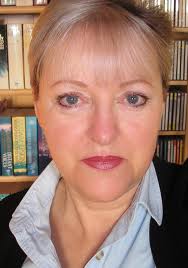I started as a Writers Bureau tutor (fiction and non-fiction) just over six years ago. Many of my students asked for on-going help with novels after they’d completed the course and also recommended my services to their writer friends. As a result I set up a private critique and editing service.
What kind of editing do you do?
This depends on the clients’ needs. I have some regular clients, who spell out up front exactly where they would like me to concentrate my efforts, but generally my reports cover grammar, punctuation, plot, theme, pace, voice, opening hooks and cliff-hanger ends to chapters and scenes. I also work with a number of non-fiction authors. In all cases I comment on what is working in the manuscript, as well as what isn’t.
How do you approach working with a client on a manuscript?
I like to establish upfront what the client expects and how (and whether) this can be accommodated. I am flexible on the type of help given. For example, an experienced writer is in need of different feedback and assistance to that required by a beginner writer.
How would you describe a successful author/editor relationship?
For me, trust is the key ingredient. Unless the relationship is built on trust there will always be difficulties. As a writer myself, I know how important it is to seek feedback from people whose opinions I value, but who don’t expect me to follow their ideas blindly. I want my clients to feel the same way. When I make suggestions for changes, that’s all they are – suggestions. It is up to the author to decide how, or if, to follow through on the ideas.
How does the situation differ when you’re editing non-fiction?
It doesn’t differ that much. I’m still looking to bring out the author’s voice and help to make the work interesting and have a page turning quality. I have a number of non-fiction authors who have been successful with their submissions to publishers after working through their manuscripts with me.
What kind of genres do you prefer to work on?
I don’t have a preference. My reading taste is eclectic and that follows through into my editing life. My goal is to help people tell their stories in the most entertaining way, be it fiction or non-fiction.
I’m intrigued to know how you get into the writer’s voice, how you know what kind of words might work, what sort of sentence rhythm will fit and how you know it will still sound like the author, not the editor.
I make a point of reading the entire manuscript before I pick up a pen. In this way I get a feel for the author’s voice. On second reading, I underline passages where the voice shines through. On third reading I begin editing, marking out the parts where the author’s voice falters and commenting directly on the text as to why I believe the passage isn’t working. I never suggest anything that doesn’t tie in with the sections marked out highlighting the author’s unique rhythm and style.
Robert Gottlieb says the editor’s relationship to a book should be an invisible one. Do you agree?
Absolutely. The end product should reflect the author and not the editor.
In the age of independent publishing and authors doing it for themselves, does the future look rosy for editors such as yourself?
Yes, it does. However, sadly, there are too many writers who rush to publish without employing an editor. I’ve read several self-published novels recently, with excellent storylines, but poorly edited, resulting in plot holes you could drive a train through and underdeveloped characters moving woodenly through the plot, delivering dialogue that simply isn’t credible.
Writers often agonise over blurbs and synopses. Would you be the kind of person who could help a writer distil the essence of a story?
I have a system where I show authors how to get down to the heart of their stories and will then work with them to produce attention-grabbing synopses.
What do you write?
 As Lorraine Mace, I am a non-fiction author of books, articles and features. On the fiction side, I write short stories for magazines and novels for children. As Frances di Plino, I write crime thrillers.
As Lorraine Mace, I am a non-fiction author of books, articles and features. On the fiction side, I write short stories for magazines and novels for children. As Frances di Plino, I write crime thrillers. http://www.lorrainemace.com/


Great interview!
ReplyDelete